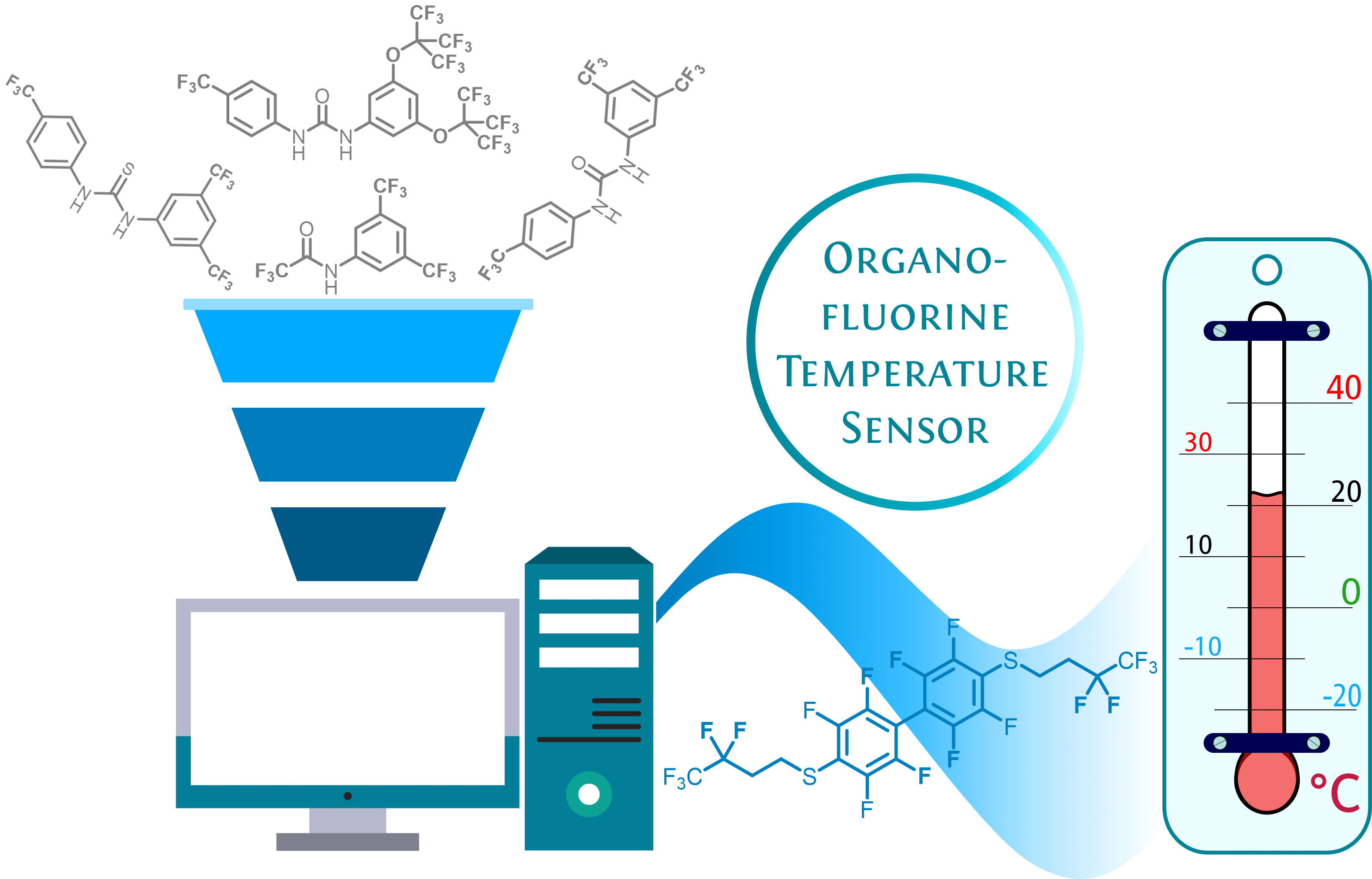Temperature Sensor
Project Graphic

Express Summary
This research aims to develop a molecular probe that can be used to measure temperature in vivo during magnetic resonance imaging (MRI). We used virtual screening to identify organofluorine compounds that could potentially improve the accuracy and sensitivity of 19F MRI-based temperature monitoring. In collaboration with our experimental team, we have developed a perfluoro-sulfane-based compound that showed a nearly 2-fold increase in temperature responsiveness compared to the current standard 19F MRI temperature sensor (perfluoro-tributylamine) and the 1H resonance frequency, a standard parameter used for temperature mapping in MRI. The ultimate goal of this work is to enhance the diagnostic capabilities of 19F MRI and promote the use of fluorine magnetic resonance techniques in clinical practice.
Project Summary
This research focuses on the development of a molecular probe that can be used to measure temperature in vivo during magnetic resonance imaging (MRI). During MRI, the absorption of radiofrequency energy by the sample can increase the temperature, which needs to be well-regulated for thermal therapies and long exposures. The researchers aim to design a fluorinated probe that can be used to accurately measure temperature using 19F MRI techniques, as the 1H resonance frequency, a standard parameter used for temperature mapping in MRI, has known limitations in terms of temperature sensitivity and tissue compatibility. To find a suitable probe molecule, the researchers used virtual screening to identify organofluorine compounds that could potentially improve the accuracy and sensitivity of 19F MRI-based temperature monitoring. They developed a perfluoro-sulfane-based compound that showed a nearly 2-fold increase in temperature responsiveness compared to the 1H resonance frequency and the current standard 19F MRI temperature sensor, perfluorotributylamine. The ultimate goal of this work is to enhance the diagnostic capabilities of 19F MRI and promote the use of fluorine magnetic resonance techniques in clinical practice.
Project Goals
- Goal-01.
- Goal-02.
- Goal-03.
Relevant Publications
- Pub-01
- Pub-02
- Pub-03
(Social Media Links!)
